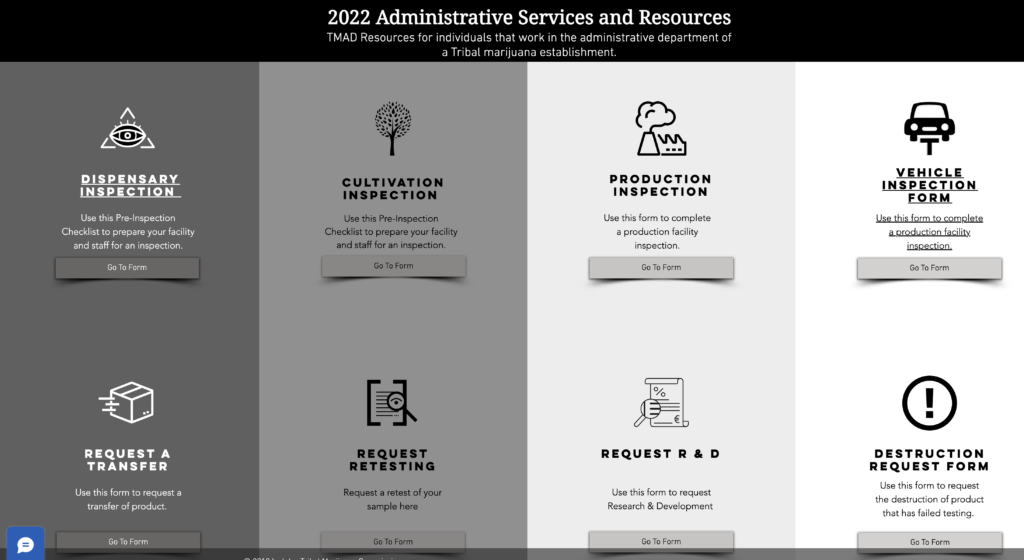
[ad_1]
Native American tribes across the country are joining the legal cannabis industry.
As sovereign nations, each tribe creates laws around the sale and consumption of cannabis. But with every tribe creating independent regulations, finding software to help with compliance can be an expensive challenge.
Tribal cannabis companies must comply with their tribe’s requirements, and they may be asked to prove compliance to the surrounding state to adhere to compacts made with those governments.
There’s also the potential the federal government could intervene.
The Trump administration revoked the Cole and Wilkinson memos which prohibited the federal government from interfering with states and Native American tribes pursuing cannabis legalization.
This cross-jurisdictional compliance is understandably cumbersome for tribal governments. Further, some tribes appreciate having an independent third party to verify cannabis operators are compliant.
There are technologies available to help, but the cost can be prohibitive. Some of Nevada’s tribes are taking an innovative approach to solve this issue.
Abiding the Rules on a Budget
Six tribal nations are members of the Inter-Tribal Cannabis Commission (ITCC), a group created to help Nevada tribes share the cost of seed-to-sale tracking and compliance software.
While it may be cost-effective for the state of Nevada to use a large platform like Metrc, tribal governments deal with fewer cannabis operators, less revenue, and more oversight.
A solution like cost-sharing can help every tribe access top-tier technology without coming out of pocket for the entire expense.
The ITCC works with Cannabis Compliance Technologies (CCT), a compliance and seed-to-sale software company specializing in tribal territories. CCT President Cassandra Dittus said the cost-sharing program is cheaper than each tribe having a paid staff member.
“The ITCC lays out a budget every year and it’s presented to the board, which has a member from each tribe,” Dittus said.
“The board is given a basic budget of what it’s going to take to operate, which includes CCT oversight, the cost of salaries, and basic operations.
“The total cost is divided by 12 for the monthly budget, then divided again by the six tribes. That’s their membership fee per month that they pay from taxation.”
The ITCC is a non-profit organization so if the cost of operations is less than the budget outlined, the excess funds are returned to the tribes.
Dittus said the software was pivotal to creating cannabis agreements with the state of Nevada.
“CCT was the first tool we utilized to build tribal sovereignty because it was a key piece to show that tribes are operating in the same sense that the state is — without having to use the state compliance software.”

There are currently six Nevada tribes with membership in ITCC, all of which use CCT for compliance and seed-to-sale product tracking. The tribes share expenses and information, creating more access to the industry.
“They have a group that has helped them work through the challenges of regulating cannabis,” Dittus said. “It’s been a huge tool for them to utilize.”
Compliance on the Blockchain
Many legalized states use Metrc or BioTrack for compliance reporting. Tribal governments are free to choose whichever software provider they prefer.
CCT is favored in Nevada because of its cost-sharing structure and easy-to-use interface.
ITCC Chief Technology Officer Bill Hayes said the easiest and most secure way to provide those services is through a distributed database management system built on blockchain.
Blockchain ensures every action within the database is tracked and transparent. “If I had a record with your name in it, for example, and I deleted the ‘R,’ it would show that I deleted the keystroke and what time the deletion was made,” Hayes said.

He built the system with blockchain to limit the options for data hacking. “The thing about blockchain is the more components you add, the more people that have a piece of that file system, the more the security of the information system itself grows.
“So if everybody has a copy of the file, and you would have to change every copy of the file in order to change that file, the more devices that have a copy of the file, the more secure you are. So as we grow, we actually become more secure instead of less secure,” Hayes said.
CCT has gone to great lengths to ensure the system is secure and easy to use while still offering robust functionality.
“On average, for each member tribe, I took roughly 4,000 pages of legalese and turned it into 20,000 pages of IFTT code,” Hayes said. “It’s literally an ‘if-this, then-that’ nested formula that works its way through all the legalese so at the end, you’re either compliant, you’re not, or it doesn’t apply to you.”
This allows the tribes to transfer data to different jurisdictions while maintaining the integrity of the data. To further level up the security and transparency for tribal governments, CCT’s software uses GPS monitoring during transportation.
It may seem like an obvious protocol, but Metrc and BioTrack do not use GPS monitoring during transportation, instead relying on after-the-fact reporting from business owners.
Increasing Tribal Participation Through Tech
CCT’s software could be a gateway into the industry for many Native American tribes seeking an affordable, efficient way to track products and verify compliance.
First Nations tribes in Canada are showing interest in CCT’s software as well, largely due to the strict reporting requirements of Canadian cannabis laws.
Dittus said each region may require different versions of CCT software to fit the regulatory environment in which it’s being used. Wherever the software is deployed, it also serves as a third-party oversight system.
Its reports are given to the tribal government so they can ensure compliance in their jurisdiction and the state’s jurisdiction if requested. As Dittus said, “It’s really a support piece to help each tribe govern itself.”
[ad_2]
Source link